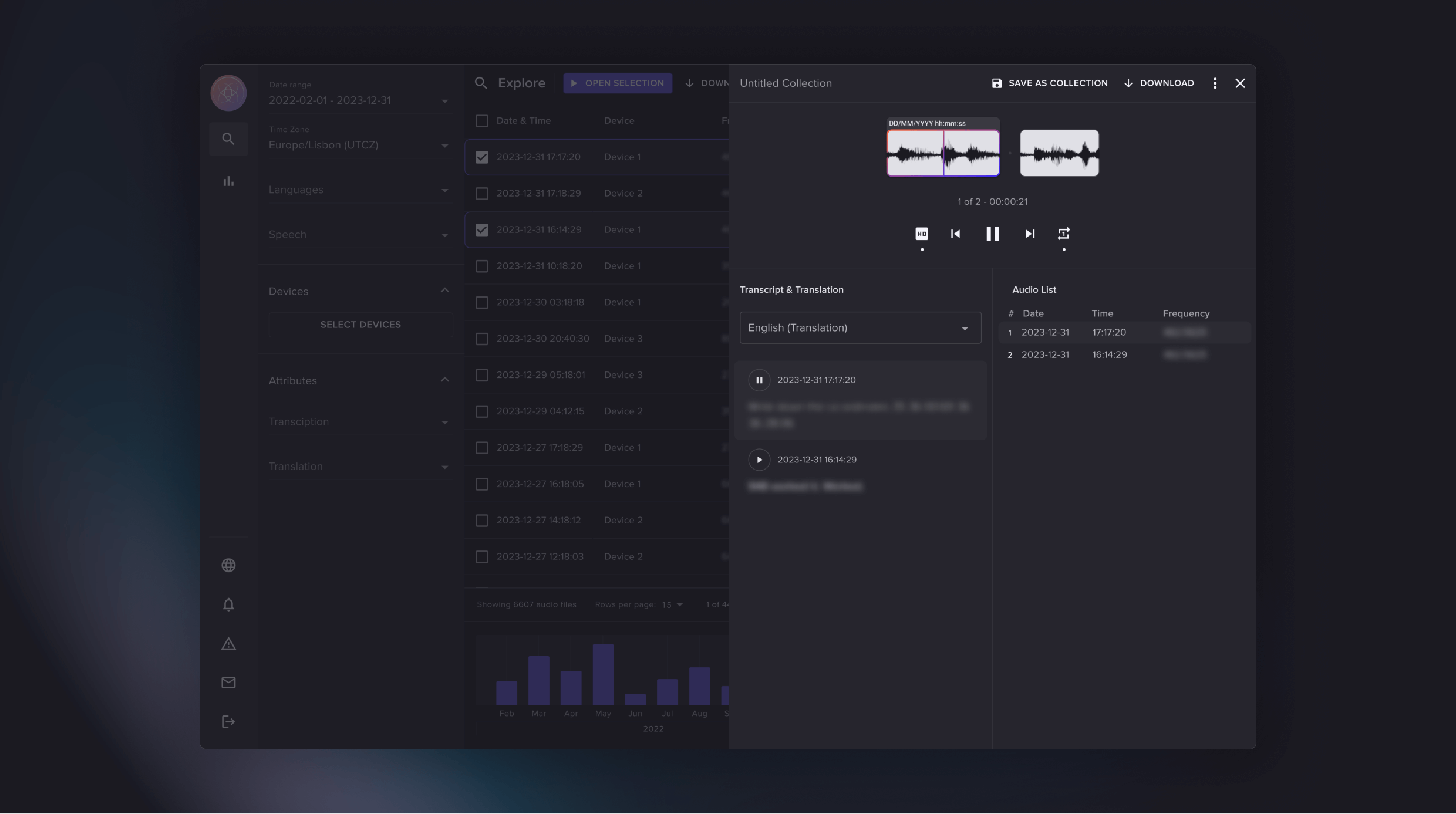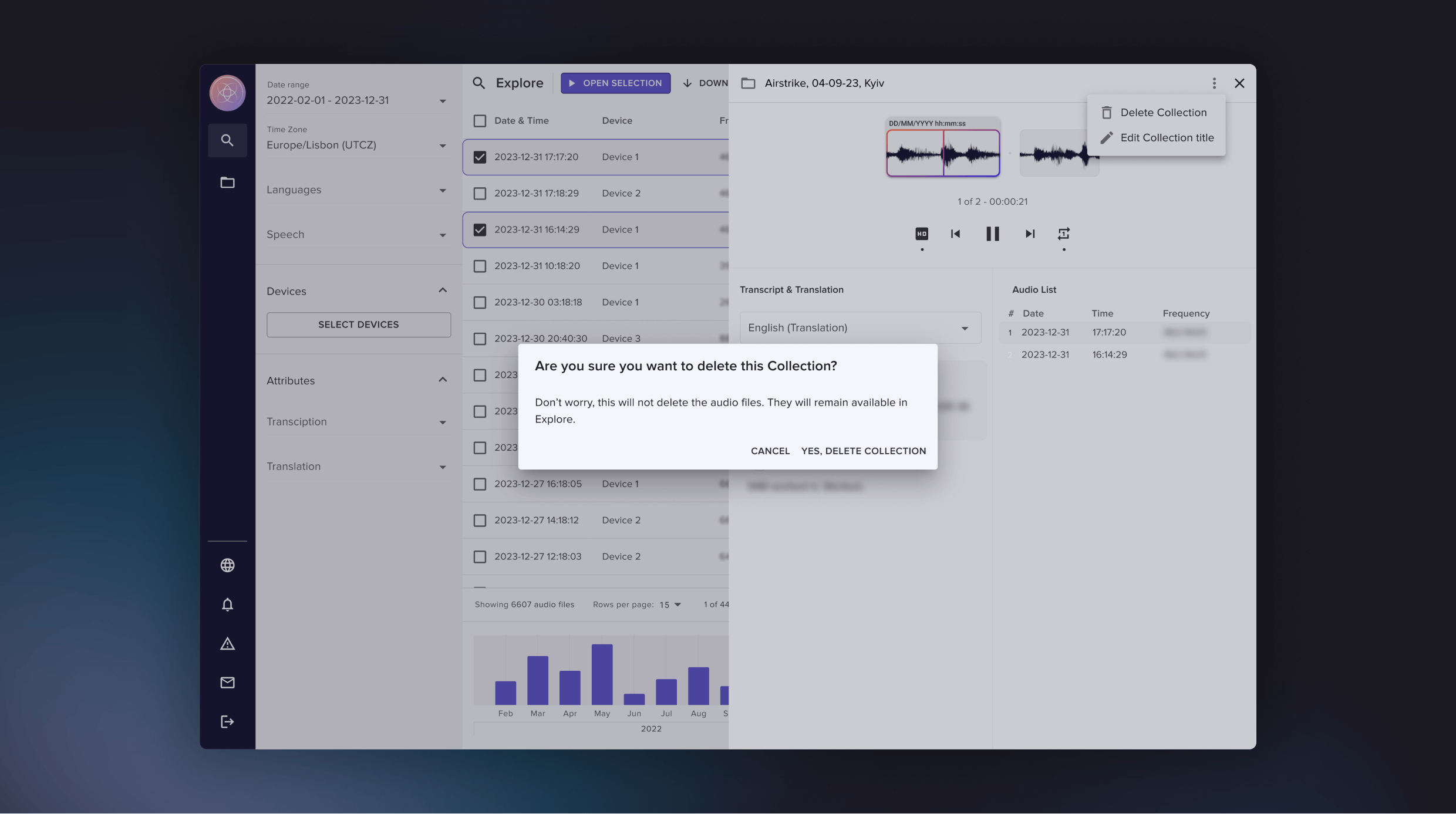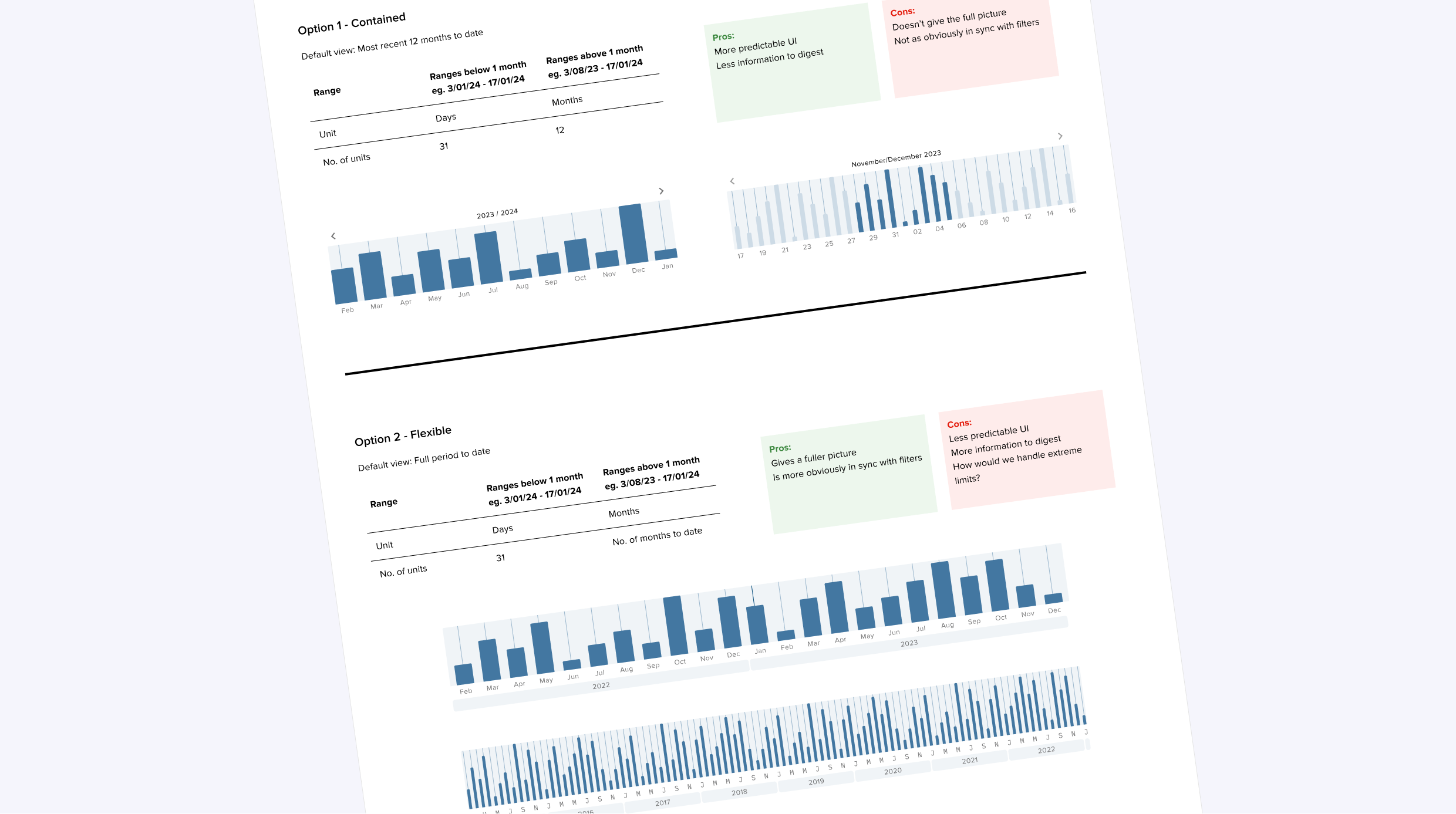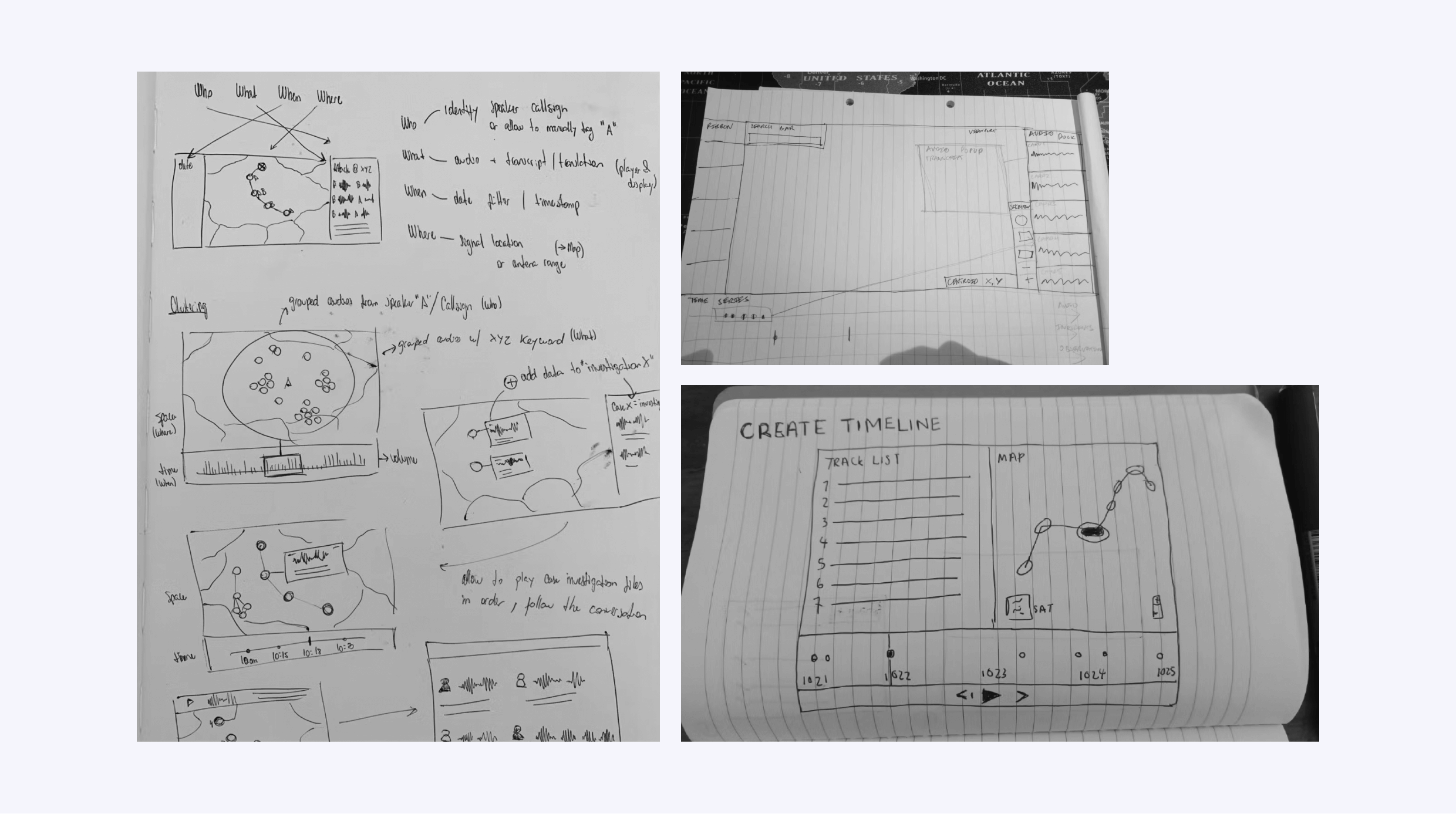Using audio to help governing bodies investigate war crimes
AccountabilityAIAudioWeb3Data
Role & Company
I lead the product design as part of the Engagement cross-functional team alongside a PM, a Subject Matter Expert and 4 engineers at Hala SystemsSummary
We launched a secure and searchable platform for investigators to analyze conversations between war criminals. It is used by multi-national accountability mechanisms, as well as local accountability and advocacy groupsJump to the screens → Jump to the methodolgy →
Problem
Endless documentation of airstrikes, no accountability
Wars are more documented than ever 1 2. Camera phones and social media mean that evidence of atrocities can be captured and shared in seconds. And yet, seeking justice seems to be harder. In Syria, besieged by conflict since 2011, only a handful of perpetrators have been prosecuted for their war crimes 3. However, the problem isn’t access to information. It’s that there’s too much of it.
Investigating airstrikes
Establishing the truth is particularly tough for those investigating airstrikes. Devastating, quick and unpredictable, uncovering exactly what happened is especially hard and often without reward. Moreover, in modern warfare, the airstrikes keep coming. Investigators are overwhelmed by the number of events they are trying to cover.
Opportunity
Intercepted radio communications help prove war crimes
Surprisingly, some of today’s flying war machines use unencrypted radio to communicate with each other and the ground. That means the sky is full of incriminating information, free to those choosing to listen. Hala Systems has been doing so for years.
However, once captured, the ‘too much information’ problem returns.
Plus, radio audio is often inaudible. When you can hear, war criminals speak to each other in unfamiliar languages and use code words.
This New York Times investigation, which uses data provided by Hala Systems, illustrates both the potential of radio audio for enacting justice, as well as its time-consuming nature.
How might we help investigators uncover airstrike-incriminating information, both quickly and at scale?
Solution
Secure and searchable conversations between war criminals
Our data engineers worked to algorithmically secure, denoise, transcribe and translate captured audio from known military channels. Meanwhile, myself and the product team developed Collect, an audio-evidence management system. It enables users to:
-
Find incriminating audio quickly by filtering time, date, language, transcription/translation status and keyword search
-
Listen to audio, read transcriptions and analyze metadata together using the analysis panel
-
Link multiple audio files by saving them as a collection
-
Add analysis by using notes
-
Download and share audio files and collections
-
Spot trends in aircraft activity and uncover new events by using the timeline
Now, investigators have incriminating audio at their fingertips, ready to hold perpetrators of war crimes to account.






Result
Enabling Justice
Collect has been used by multi-national accountability mechanisms, as well as local accountability and advocacy groups, to support ongoing investigations.
Users have said Collect has allowed them to ‘accurately track events and listen to audio files seamlessly’ and has been ‘effective for… research work on [past] air attacks’.
Methods
Expert Interviews
User Interviews
Desk Research
Assumption Mapping
Empathy Mapping
Jobs to be Done
Ideation
Storyboarding
Prototyping
Design crits
Usability testing
Surveys





